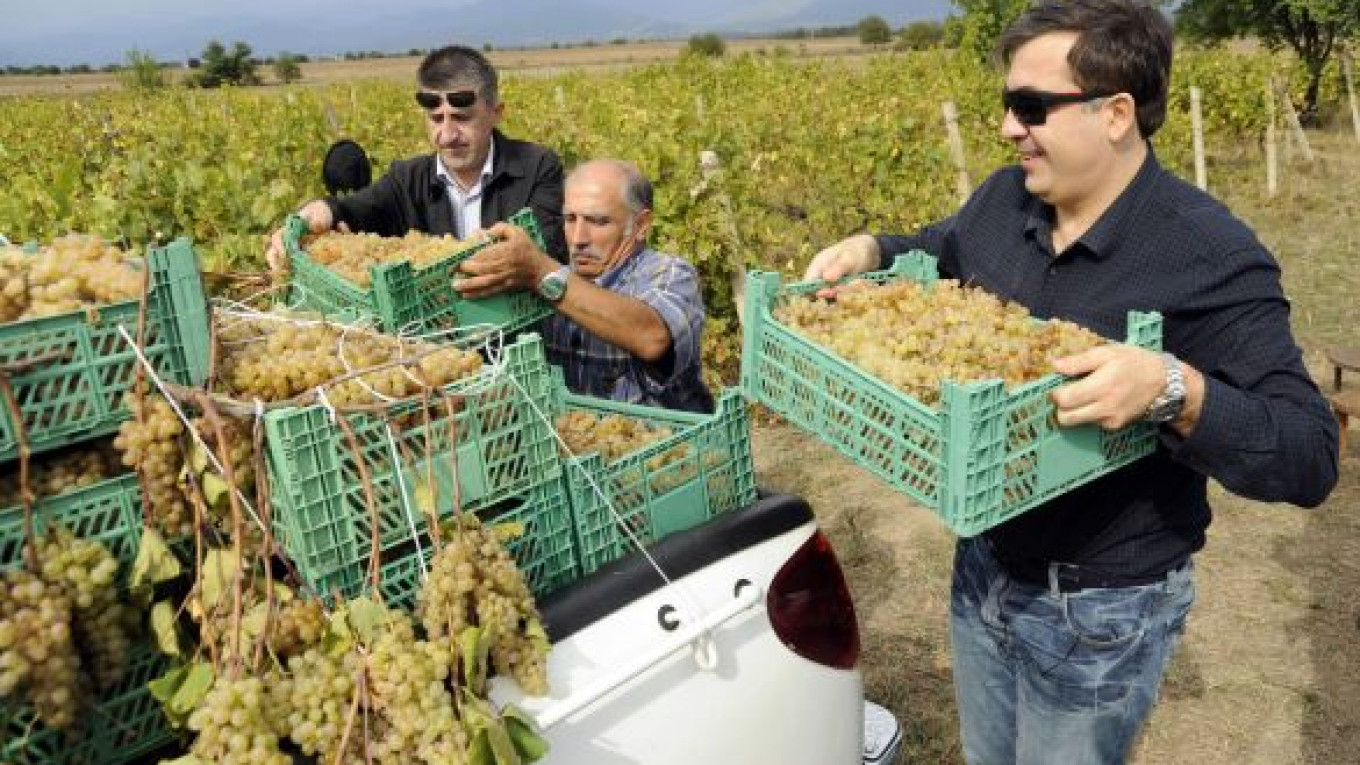TBILISI, Georgia — NATO's chief urged Moscow on Friday to fully observe its commitments under a peace deal that ended a 2008 war between Russia and Georgia, but he also voiced hope for stronger ties between the alliance and Russia.
NATO's Secretary-General Anders Fogh Rasmussen said on a visit to Georgia that the military alliance respects Georgia's territorial integrity and supports its aspirations to become a member, but he would not say when the country might join.
The peace deal brokered by the European Union ended the brief war in which Russian troops drove Georgian forces out of the separatist regions of South Ossetia and Abkhazia, which Russia has since recognized as independent states.
Georgia and European observers have said Russia has not met an obligation to withdraw its forces to positions held before the August 2008 conflict. Russia also has refused to let EU monitors enter Abkhazia and South Ossetia.
"We insist on full respect for Georgia's territorial integrity, we pursue a nonrecognition policy as regards Abkhazia and South Ossetia, and we call on Russia to fulfill the commitment according to the six-point agreement from 2008," Rasmussen said at a news conference after talks with Georgian President Mikheil Saakashvili.
Rasmussen also praised Georgia's contribution to the alliance's action in Afghanistan, where four Georgian soldiers were killed Thursday. "I highly appreciate your dedication to our common security," he said on a visit to the Georgian Defense Ministry.
NATO leaders meeting in Lisbon next month are likely to reaffirm a promise made before Georgia and Russia fought a brief war in 2008 that Georgia will eventually join the alliance, Rasmussen said.
"I would expect the NATO summit in Lisbon to reaffirm our position which we took already in Bucharest in 2008 that Georgia will become a member of NATO, once Georgia fulfills the necessary criteria," Rasmussen said.
At its Bucharest summit in 2008, NATO said Georgia and Ukraine would become members but refrained from putting them on an immediate path to membership.
The Russia-Georgia war broke out four months later.
Saakashvili reaffirmed on Friday that joining NATO has remained a top priority for his government.
At the same time, Rasmussen said Friday that NATO hopes to improve relations with Russia, leading hopefully to a "true strategic partnership."
Moscow's relations with NATO, frozen in the wake of the 2008 war with Georgia, have improved recently as Russia has provided supply corridors for NATO troops in Afghanistan.
"My vision is to see a development of a true Euro-Atlantic security architecture, where … Russia and Georgia can live in peace and harmony with each other," Rasmussen said. "I do believe that Russia's future lies within positive cooperation with NATO and the European Union."
Foreign Minister Sergei Lavrov said in remarks published Thursday in Rossiiskaya Gazeta that Russia wanted to know more about NATO's vision of bilateral ties and its own future before agreeing to meet on the sidelines of the Lisbon summit.
Meanwhile, Deputy Foreign Minister Alexander Grushko said Saturday that Russia was “seriously considering” accepting a NATO offer to jointly build a missile shield.
(AP, Reuters, Bloomberg)
A Message from The Moscow Times:
Dear readers,
We are facing unprecedented challenges. Russia's Prosecutor General's Office has designated The Moscow Times as an "undesirable" organization, criminalizing our work and putting our staff at risk of prosecution. This follows our earlier unjust labeling as a "foreign agent."
These actions are direct attempts to silence independent journalism in Russia. The authorities claim our work "discredits the decisions of the Russian leadership." We see things differently: we strive to provide accurate, unbiased reporting on Russia.
We, the journalists of The Moscow Times, refuse to be silenced. But to continue our work, we need your help.
Your support, no matter how small, makes a world of difference. If you can, please support us monthly starting from just $2. It's quick to set up, and every contribution makes a significant impact.
By supporting The Moscow Times, you're defending open, independent journalism in the face of repression. Thank you for standing with us.
Remind me later.






